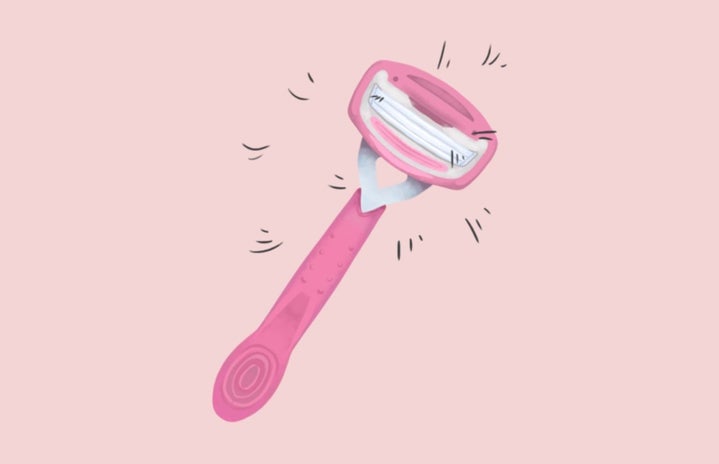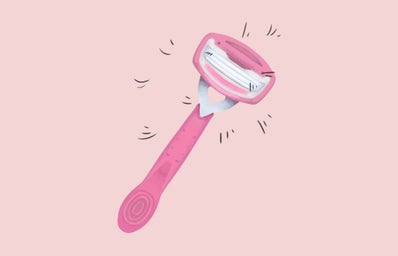The opinions expressed in this article are the writer’s own and do not reflect the views of Her Campus.
“Izzy, don’t forget to shave your beard today” was a common phrase I heard growing up. Having comments such as “big foot” or “monkey” said about me was normal. Being told that if I did not shave my body hair, I was unhygienic or that I was disgusting was common.
Being of Italian and Czech descent, I have struggled with my thick and dark body hair for a very long time. When I did not feel like shaving, wearing long sleeve shirts and long pants in warmer weather was what I did to hide the shame I had felt about my body hair.
This stigma about hair on women began in 1915 in an advertisement from Gillette, one of the largest shaving companies in the world. The original commercial eventually snowballed into one of the largest markets for women in the modern century while also establishing one of the most strict societal standards. The advertisers took advantage of the new fashion of sleeveless tops and short dresses to promote their razor for women. In it the company used words such as “unsightly” and “objectionable” to describe body hair, especially underneath the arms. I am not sure about you but, if mainstream media had projected that onto me, I would wax my body at least three times a week.
The new market for women’s shaving products grew because these advertisements viewed shaving as necessary. Today, women continue to be marketed to shave body hair. On my TikTok For You page, people are looking for easier, faster, and more unconventional ways to be stripped of the “unhygienic” hairs on their bodies. In a report from Euromonitor International, women in the United States spend 1 billion dollars on shaving products each year.
Women’s pressure to be as smooth as a baby has not gone unnoticed by some corporations. A good example of this is the company Billie who’s mission statement reads “we want to undo the unfair social pressures women face, starting with double standards around shaving and body care, and celebrate the infinite ways women can look, feel, and be in the world.” The feel of their campaigns is “you don’t have to shave, but we are here when you want to.”
Another topic Billie hits very well is the equality between razors. Have you ever used a men’s razor and compared them to a women’s razor? The difference in price and quality is drastic. The Pink Tax is a well-known issue about how products marketed to women tend to be more expensive than the alternative. This includes the pink razors that go dull after about 30 minutes of use. On the other hand, men’s razors can last me up to two weeks, are more efficient, less expensive, and get a closer shave. Even when conforming to sexist societal standards, women still face drastic inequalities.
As a woman impacted by the greed of capitalist institutions, I had to see this for myself. So, I compared the two websites Gillette and Gillette Venus. I noticed that Gillette, for the most part, had prices on their individual razors, while their counterpart didn’t. When I gave up looking for the prices on their website, I looked to Walmart and I found that the traditionally men’s razors are $12.97 while the traditionally women’s razors are $14.97. Another thing to note is that most of the men’s razors being sold are metal, designing them to last. On the other hand, most of the women’s razors are made with plastic, setting them up for failure. This is not uncommon, but because these razor companies know that women are insecure about their body hair, they can continue to have premature obsolesce in their products. Creating a stigma against our body hair hurts but making sure we feed into your corporate greed hurts a little bit more.
At some point, I noticed that it was so freeing to not give a sh*t. Being confident is a lot more fun than constantly worrying about what a multi-billion-dollar industry has set out to make you feel about yourself. Shave or don’t shave; that is up to you. Just make sure it feels good for you.


